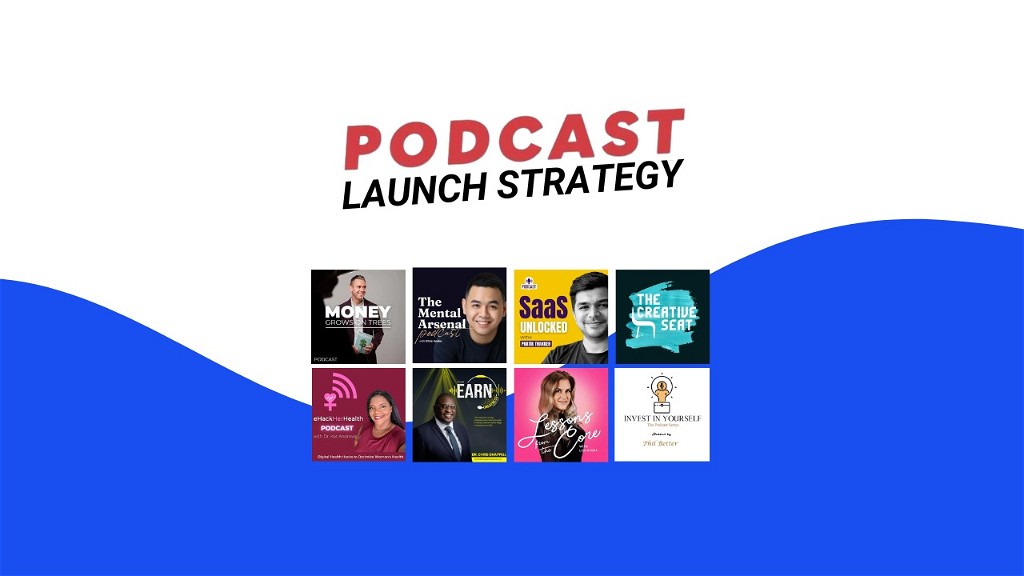Picking the right podcast topic is crucial for success. Here's a quick guide to help you choose:
- Find your passion
- Know your audience
- Research existing podcasts
- Brainstorm unique ideas
- Make your show stand out
- Ensure long-term viability
- Test your concept
- Align with your goals
Key points:
- Choose a topic you love and can talk about for 100+ episodes
- Understand your target listeners' interests and needs
- Look for gaps in the current podcast landscape
- Develop a unique angle to differentiate your show
- Test your idea with practice episodes and feedback
- Ensure your topic aligns with your business or personal goals
Remember: It's better to start and refine as you go than to overthink and never begin.
Quick Comparison:
| Aspect | Why It Matters |
|---|---|
| Your Interest | Keeps you motivated |
| Audience Appeal | Attracts listeners |
| Uniqueness | Helps you stand out |
| Content Depth | Ensures long-term viability |
| Goal Alignment | Supports your objectives |
By focusing on these elements, you'll be well on your way to choosing a podcast topic that resonates with both you and your audience.
Related video from YouTube
Know What You Like and What You're Good At
Picking a podcast topic isn't just about trends. It's about finding your sweet spot - something you love and can talk about for ages.
List Your Interests
Grab a pen and jot down everything you enjoy talking about. Hobbies, work stuff, things you're curious about - it's all fair game. This is your starting point.
Check Your Skills
What do you know inside and out? Maybe you're a digital marketing whiz or a woodworking pro. Your expertise is podcast gold.
"It is important to be knowledgeable about a topic if you are going to talk about it on your podcast." - Lower Street
Not an expert? No worries. Just be ready to dive into some serious research before you hit record.
Think Long-Term
Ask yourself: "Can I chat about this for 100 episodes?" If you're nodding, you're on the right track. If not, maybe rethink your choice.
| Consider | Why |
|---|---|
| Passion | Keeps you going |
| Knowledge | Makes for quality content |
| Topic longevity | Prevents idea drought |
Running out of ideas? It's a real concern for many hosts. With listeners hungry for content, you need to deliver. Choosing a topic you love and know well sets you up for the long haul.
Alban Brooke from Buzzsprout nails it:
"Choosing the right topic for your new podcast is foundational to your show's success."
So, take your time here. It's a big deal. Pick something that fires you up - your excitement will come through in every episode.
2. Know Your Listeners
To nail your podcast topic, you've got to get inside your listeners' heads. Here's how:
2.1. Describe Your Ideal Listener
Don't just think "adults who like video games." Get specific:
"Women, late 20s, East Coast, FPS fanatics, struggling to find gaming time."
Paint a vivid picture. Who are they? What keeps them up at night? What gets them excited?
2.2. Look at Listener Data
Numbers don't lie. Check this out:
| Age Group | % of Monthly Listeners |
|---|---|
| 12-34 | 59% |
| 35-54 | 55% |
| 55+ | 27% |
Source: Edison Research
Young folks love podcasts, but don't ignore the older crowd.
2.3. Match Topics to Listeners
Connect the dots between your ideas and your listeners' wants:
- What's useful to them?
- What makes them laugh?
- What solves their headaches?
"The more specific you can get in imagining who your ideal listeners are, the more likely you are to have a more dedicated following." - Elizabeth Amos, Lower Street Production Manager
Here's a kicker: 60% tune in for fun, 55% to learn. Hit one (or both) of these targets.
Want more intel? Try these:
- Survey your listeners
- Scour social media comments
- Spy on popular episodes in your niche
Know your audience, and you're halfway there.
3. Look at Other Podcasts
Want to find the perfect podcast topic? Check out what's already out there. Here's how:
3.1. Listen to Similar Podcasts
Tune into shows in your area of interest. You'll:
- See what's popular
- Learn how hosts engage listeners
- Spot what's missing
Let's say you're into tech. Listen to "Talking Tech" or "Hands on Tech". They cover broad topics, but might skip specific niches.
3.2. Find Missing Topics
Look for gaps. What aren't others talking about?
Try Rephonic to search podcasts by category, audience, country, and language. It's a quick way to find untapped areas.
Example: You might find tons of general science podcasts, but few on specific fields. That could spark an idea like "Physics World Stories", where Andrew Glester chats with people behind cool scientific discoveries.
3.3. Learn from Others
Pay attention to what works (and doesn't) in other podcasts. Ask:
- What's their format?
- How long are episodes?
- How often do they release?
- What engagement do they get?
| Aspect | Questions to Ask |
|---|---|
| Content | Topics? Depth? |
| Format | Interviews? Solo? Panel? |
| Length | Short (15-30 mins) or long (60+ mins)? |
| Schedule | Weekly? Bi-weekly? Daily? |
| Engagement | Reviews? Social media interaction? |
This helps you understand what listeners want.
"Find out what other podcasts in your area are talking about." - Riverside.fm
Key advice. It helps you get the lay of the land and find your unique angle.
Don't copy others. Find a fresh take on topics people care about. For instance, "Say Why to Drugs" takes a scientific look at drugs, debunking myths. It stands out from other drug-related podcasts.
4. Come Up with Ideas
You've checked out other podcasts. Now it's time to brainstorm your own ideas. Here's how:
4.1. Write Down All Ideas
Grab a pen and paper. List EVERY podcast topic that pops into your head. Don't filter - just write. This helps you:
- Dump all your thoughts
- Spot patterns in what interests you
- Make unexpected connections
Aim for at least 20 ideas. That's a solid starting point.
4.2. Use Mind Maps
Mind maps are great for connecting ideas. Here's a quick how-to:
- Write your main topic in the middle of a page
- Draw branches for related subtopics
- Add more branches for specific episode ideas
Let's say your main topic is "starting a podcast". Your branches might include:
- Tech (mics, software)
- Content (scripts, guests)
- Marketing (social media, SEO)
This visual approach can spark new ideas and show gaps in your plan.
4.3. Pick the Best Ideas
Now, choose your winners. Think about:
- What gets you fired up
- What your listeners might want
- What's fresh or different from other podcasts
| Criteria | Ask Yourself |
|---|---|
| Your Interest | Does this topic excite you? Can you talk about it for hours? |
| Listener Appeal | Will your audience care? Does it solve a problem for them? |
| Uniqueness | Is this a fresh take? How's it different from what's out there? |
| Long-term Potential | Can you create multiple episodes? Is there enough to say? |
Pick a topic you can stick with. As Chris Land from ImprovePodcast.com says:
"If podcasting is really important to you then treat it with respect and build small rituals around it."
This applies to your topic too. Choose something you'll enjoy exploring week after week.
sbb-itb-cdb7710
5. Make Your Podcast Stand Out
You've picked your topic. Now let's make your podcast pop. Here's how:
5.1. Find Your Special Thing
Every hit podcast has a unique angle. It could be:
- A fresh take on a common topic
- An unexpected mix of subjects
- Your personal experiences or expertise
Think: Instead of a generic business show, why not "sustainable practices for small businesses"? This narrow focus can draw in listeners who care about that specific niche.
5.2. Show How You're Different
Once you've nailed your unique angle, flaunt it:
- In your podcast name
- During your intro
- Throughout your episodes
Let's say you're doing a "health and fitness for new parents" podcast. You could:
- Kick off each episode with a quick tip for busy parents
- Share your own parenting fitness struggles
- Chat with other parents about their workout wins and woes
5.3. Write a Good Description
Your podcast description is your elevator pitch. Make it count:
| Do | Don't |
|---|---|
| Be specific about your topic | Use vague language |
| Highlight your unique angle | Try to please everyone |
| Use relevant keywords | Overload with keywords |
Try this simple template:
"[Podcast Name] is the show that [what you do] for [your audience]. Each week, we [what happens in your show] to help you [benefit for the listener]."
6. Check If You Have Enough to Talk About
Got a topic? Great. Now let's make sure you can keep the conversation flowing.
6.1. Test Your Topic's Depth
Before you start recording, do this quick check:
- Jot down 10-15 episode ideas
- Sketch a quick outline for each
- Struggling? Your topic might be too narrow
6.2. Plan Your Content Mix
Think about different episode types to keep things interesting:
| Episode Type | What to Cover |
|---|---|
| Solo shows | Deep dives, how-tos, your stories |
| Interviews | Experts, success stories, listener Q&As |
| Case studies | Real examples, problem-solving |
Aim for at least 20 solid ideas before you launch.
6.3. Look to the Future
Ask yourself:
- Is your topic just a passing fad?
- Can you talk about it for months (or years) without getting bored?
- Will there be new stuff to discuss?
"Your listeners appreciate consistency." - Stefanie Gass, Podcast Coach
Pro tip: Record 4+ episodes before launch. Always have a month of content ready. This gives you breathing room and helps keep your quality high.
7. Try Out Your Idea
Got your podcast concept? Great. Now let's test it out. This step is key to smoothing out any wrinkles before you launch.
7.1. Make a Test Episode
Record a practice run. This helps you:
- Check your gear
- Get comfy with hosting
- See how your show flows
"You'll only know what works by actually podcasting." - Kris Gilbertson, Podcast Instructor
7.2. Ask for Opinions
Get feedback from 10+ people you trust:
- Send them your test episode
- Ask specific questions:
- How likely are they to recommend it? (1-10)
- What stuck with them?
- What needs work?
7.3. Change Based on Feedback
Use what you learn to polish your podcast:
| Feedback Area | Possible Tweaks |
|---|---|
| Content | More examples, simpler explanations |
| Audio | Better mic, improved room setup |
| Pacing | Shorter segments, more pauses |
| Engagement | Listener questions, clear call-to-action |
8. Align Your Podcast with Your Goals
Let's make sure your podcast idea fits what you want to achieve.
Set Clear Objectives
Why are you starting a podcast? Maybe you want to:
- Boost your brand
- Get more business leads
- Show you're an expert
- Build a community
Be specific. Instead of "I want lots of listeners", aim for "1,000 downloads per episode in the first month."
Consider Monetization
If you're looking to make money, here are some options:
| Method | How It Works |
|---|---|
| Sponsors | Get paid to mention products |
| Merch | Sell branded items |
| Premium Content | Offer paid extra episodes |
| Services | Use the podcast to attract clients |
But remember: Build an audience first, then think about money.
Make Sure It All Fits
Your podcast topic should match your goals:
- Brand awareness: Show what you know. A fitness company could talk about health tips.
- Lead generation: Solve problems for potential customers. A B2B software company might discuss business productivity.
- Thought leadership: Talk about new industry trends. Bring in other experts as guests.
"Build an audience that matches your target customer. You'll create connections and fans of your brand." - Lower Street
Your goals might change. Be ready to adjust your podcast as needed.
Conclusion
Picking the right podcast topic can make or break your show. Here's what to remember:
- Choose a topic you love
- Know who you're talking to
- Get specific with your niche
- Test your idea with episode brainstorming
- Find your unique angle
- Plan your content
- Match your topic to your goals
Colin Gray, who wrote "Podcast Growth: How to Grow Your Podcast Audience", says:
"It takes zero audience to begin. But to go beyond zero, you need to BEGIN!"
So don't overthink it. Pick a topic you're into, start recording, and tweak things as you go. Your podcast adventure starts now!
FAQs
How to decide a topic for a podcast?
Picking a podcast topic isn't rocket science. Here's how to do it:
- What gets you fired up? Make a list of your interests and skills.
- Who's gonna listen? Figure out your target audience and what they care about.
- What makes you different? Find your unique angle.
- Can you make money? Think about future monetization.
- What's hot right now? Check out industry trends.
- Give it a test run. Create sample content for your top ideas.
"If you try to talk to everyone, you'll end up talking to no one. The internet's too noisy for that." - Lij Shaw, Podcast Professors
How to choose a topic for a podcast?
Choosing your podcast topic boils down to:
- What's your jam? Identify what you love talking about.
- Who's your crowd? Figure out what your listeners want.
- What's missing? Look for gaps in existing podcasts.
- Will it last? Make sure your topic has legs.
- Ask around. Get feedback on your ideas from others.
How to come up with a podcast idea?
Need podcast ideas? Try these:
- Brain dump. Write down every idea, no matter how wild.
- Mix and match. Combine different interests for a unique spin.
- Be a problem solver. Use your expertise to help others.
- Zoom in. Take a broad topic and focus on one aspect.
- Tell your tale. Share your personal experiences or insights.
For example, love rock climbing and money management? Start a podcast on budgeting for outdoor adventures or investing tips for athletes.




